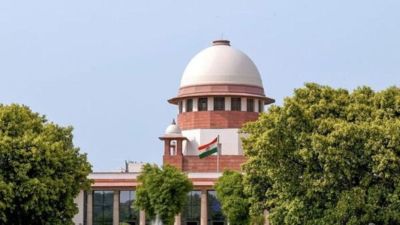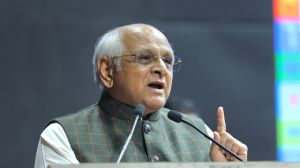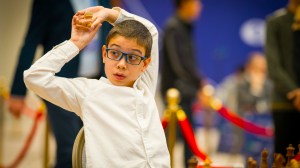Message from a mother and a lawyer
It is universally acknowledged that Pakistan stands exposed in Kargil and in the corridors of diplomacy worldwide. But are we in the proc...

It is universally acknowledged that Pakistan stands exposed in Kargil and in the corridors of diplomacy worldwide. But are we in the process of defeating the "idea" of an extremist Pakistan?
Mir Taqi Mir said : Chashm ho to aayina khana hai dahar/Munh nazar aata hai deewaron Ke beech. (If you have that inner eye, this world is a hall of mirrors; you can see your face in what the physical eye sees only as a blank wall).
I saw the idea of Pakistan take a drubbing when a composed and dignified Begum Hema Aziz received the body of her son Lt. Haneefuddin, of the Rajputana Rifles, who was killed in action in Kargil. Brigadier Prakash Chaudhary made sure that the body of the 24-year-old officer was recovered at all costs, under intense firing in the Turtuk sector.
I saw the "idea" corrode when Indian jawans raised their hands for Fateha over the Pakistani dead on the Kargil hills — also with pious dignity.Images of returning soldiers, dead or alive, have an emotive appeal which sometimes transcendsreason. That is why it is important to locate instances of victory over the "idea" in the normal intercourse of our daily lives.Well, I saw the idea trounced in the courts of Lucknow on Wednesday when Shabihul Hasnain, a young and distinguished lawyer, won a keenly contested election as senior vice president of the Avadh Bar Association.
The significance of this victory deserves explanation. During the Babri Masjid fiasco of December 6, 19-92, the section most severely gripped, intellectually, by the prevailing mood of madness was the legal community of Lucknow. The RSS and the BJP were not only on the ascendant, they had taken charge. They remain the dominant group.
The electoral college consisted of 1,100 senior lawyers of the high court of whom only 125 are Muslims. P.N. Mathur, 65, won the contest for president without much fuss. But Shabihul Hasnain, 41, was in the field with nine other candidates. And he defeated all the others by an impressive margin.Obviously, political parties are not directlyinvolved in a bar association election, but, as Shabihul admits "there is no way I could have won without overwhelming support from the majority community a sizeable number of whom are privately affiliated with the BJP. The reason why Shabihul’s success, and his reasoning for it, comes across as a bit of surprise is the decades of "secularism" versus BJP indoctrination people have been subjected to in which the BJP is portrayed as the ogre out to devour the Muslims.
In hindsight, it may be possible to infer that much of the communalism of the past decades was on account of the political contest between the BJP (which itself was an advance on the Jana Sangh) and the Congress which cast the "secularism" net to retain the Muslims as a vote bank. Since the Congress was in power for most of these years, it was politically expedient to portray this captive vote bank as the "pampered" minority. This came in handy for greater Hindu consolidation. Once this consolidation began to take shape Indira Gandhi gave thatfamous twist to the elections in Jammu. One thing led to the other until a confused Rajiv Gandhi, rather simple-mindedly, opened the locks of the Ram temple in Ayodhya to please the Hindus and handed Shah Bano to the Muslims.
By the time P.V. Narasimha Rao appeared on the scene, backward caste politics as a result of Mandalisation made it essential for both the Congress and the BJP to rush for upper caste support. This competition in saffronisation between the two reached its climax with the fall of the Babri masjid. The "pampered minority" defected en bloc from the Congress. The rest is history.
But the consequence of all these developments has been that the minorities have been freed of their past immobility. They are now creating a room for themselves free of political prejudice. Shabihul Hasnain, an active member in his community’s numerous religious festivities and observances, is a metaphor for the new, "freed" Muslim. He is not a "westernised", non-religious secularist either. In his private lifehe is a deeply religious man. It is in his social interaction that he is the quintessential Indian whom, earlier, his Hindu supporters elected to the executive committee of Lucknow University as well.
The Shabihul Hasnain episode is but a tiny strand in the complex tapestry of a harmonised, tolerant, democratic republic on the move. It is this harmony, with minimal false notes, which will eventually defeat the "idea" of Pakistan.
It is a delicate business because defeating the "idea" does not, by a long shot, entail the erasure of our neighbour. It entails applying, by example, pressure on its institutions which are lurching towards extremism and intolerance in the name of Islam. We need in our neighbourhood a tolerant, democratic society, where land reforms are overdue; where the Mohajirs, Sindhis, Pashtun, Baluchis are all groaning under a Punjabi yoke. A society which, to keep itself together, harps on Kashmir as its only focal point; a society which exports terrorism so that our tapestry is frayed, sothat Shabihul Hasnain does not win elections but retires into a Muslim ghetto, so that Begam Hema Aziz is not celebrated as the proud mother of a martyr.





- 01
- 02
- 03
- 04
- 05


























